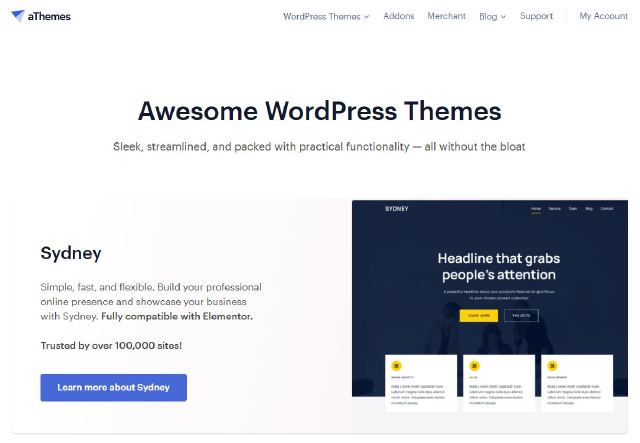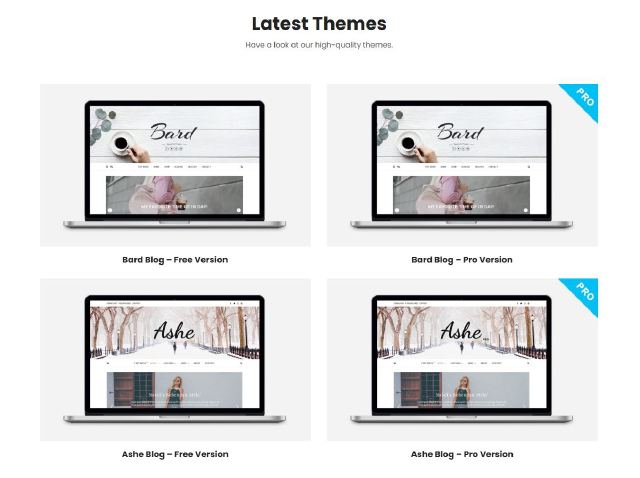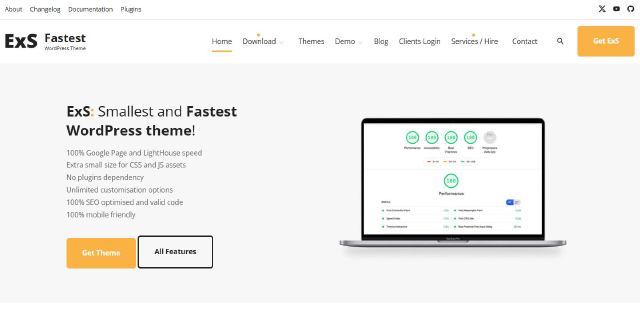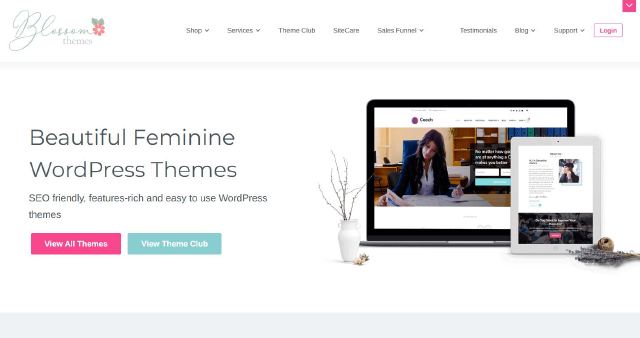
Choosing the right layout for your WordPress theme is crucial, as it impacts both aesthetics and functionality.
In this post, we’ll explore the differences between sidebar and full-width layouts, weighing the advantages of each.
Our goal is to help you make an informed decision that aligns with your content, design preferences, and user experience objectives.
Understanding Sidebar Layouts
Sidebar layouts are a popular choice for many websites. They provide structure and additional space for various types of content, such as widgets, ads, and more.
Here are some key considerations when choosing a sidebar layout:
Enhanced Widget Accessibility
Sidebars provide dedicated space for widgets, making it easier for users to access additional content, navigation, and features without overcrowding the main content area.
This can significantly improve the usability of your site, especially if you need to feature multiple elements without cluttering the page.
Content Focus
In a sidebar layout, the main content area remains the focal point. The sidebar is secondary, ensuring that the user’s attention stays on the core material.
This is particularly important for content-heavy websites that prioritize reading experience over other features.
Monetization Opportunities
Sidebars offer strategic placements for ads, affiliate links, or promotional content, potentially increasing your revenue.
If your website is monetization-focused, this layout can provide the perfect space for these elements without interfering with the user experience or the main content.
Embracing Full-Width Layouts
Full-width layouts offer a sleek, modern design, making them an excellent choice for creative and visually-driven websites.
Let’s look at the advantages:
Visual Impact
Full-width layouts create an immersive experience. These layouts are ideal for showcasing large images, videos, and other multimedia content that require more space to fully captivate the viewer.
If your website relies heavily on visuals, a full-width layout is a great way to ensure your content is presented in the best light.
Modern Aesthetics
Contemporary design trends often favor full-width layouts for their spacious, clean appearance. The wider layout can provide a more minimalistic look, which appeals to users who prefer simple and modern designs.
If you’re going for a cutting-edge aesthetic, a full-width theme might be the best choice.
Responsive Design
Full-width layouts excel in responsiveness, adapting seamlessly to various screen sizes.
This is crucial for modern websites, as users increasingly access websites from a variety of devices. A mobile-first approach to design ensures that the layout remains consistent and user-friendly across desktops, tablets, and smartphones.
Factors to Consider
When deciding between a sidebar and full-width layout, there are several important factors to consider that will help you make the best choice for your website.
Content Type
Consider the nature of your content. Text-heavy articles may benefit from a sidebar layout, as it can provide space for additional navigation or related content.
On the other hand, visual portfolios or galleries will shine in a full-width layout, allowing for more space and a cleaner presentation of images.
User Experience
User experience should be a top priority. A cluttered sidebar may distract users from your main content, making navigation more difficult.
However, a well-organized sidebar can enhance usability, especially if it’s carefully designed.
On the other hand, a full-width layout can provide a cleaner, uninterrupted browsing experience, especially if your goal is to engage users with visual content.
Monetization Goals
If your website is heavily reliant on advertising, a sidebar layout can provide strategic placements for ads, affiliate links, and more.
However, if your site is less ad-centric, a full-width layout may provide a more seamless user experience without interruptions.
Making the Decision
Making the right layout choice requires careful consideration of your website’s content type, user experience, and monetization goals.
Evaluate Your Content
Think about the type of content you primarily feature. If your site is focused on long-form articles, a sidebar layout may be ideal to keep your content organized.
However, if your website showcases visual content, a full-width layout will allow these visuals to take center stage and leave a lasting impression.
Consider User Interaction
It’s important to consider how users interact with your site. A clean, uncluttered design can lead to better engagement, particularly if users can easily navigate the site without distractions.
A sidebar layout may suit websites that require multiple sections of information, while a full-width layout works best for minimalist design focused on content.
Test and Gather Feedback
Before committing to one layout, consider testing both options. Implement both layouts and gather feedback from your users to see which design resonates with them.
User preferences are key to optimizing the layout for better engagement and functionality.
Conclusion
Choosing between a sidebar and full-width layout depends on your website’s purpose, content, and goals.
Both options come with their own set of advantages and trade-offs, but understanding your audience and content type is key to making the right choice.
Whether you lean toward the practicality of a sidebar or the immersive experience of a full-width design, your layout should complement the narrative and objectives of your online presence.




